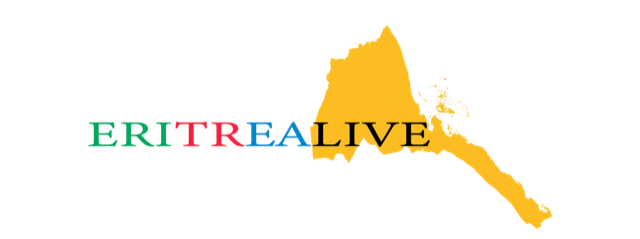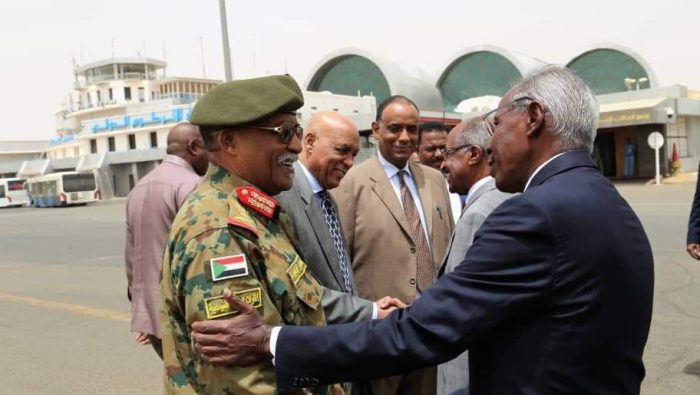Eritrea, public vs. private health, no dangers for ill people

Eritrea, public and private health. No dangers for ill people.
In Eritrea, at least according to other countries from abroad, an issue has arisen on public and private health. Catholic healthcare for patients being at the centre of the dispute. A question addressed last June by the report of the UN “Special rapporteur”, on the “situation of human rights in Eritrea”. In the report it is written that the Catholic Church activity in the healthcare field has been limited. A situation that would allegedly put at risk the life of many patients.
On this question of principle Eritrea replied to accusations reminding that their Country was founded on secularism. Not having a state religion, thus, does not mean forbidding religion. On the contrary, it means that everyone can practise freely their religion, in the respect of the religion of others and of the laws of the State.
In Eritrea, a country a little smaller than Italy, the majority of people, from a religious point of view, is divided between Christian-Coptic and Muslims. There are also Catholic and Protestant minorities, heritage of the missionary past.
Religious tolerance is not just a theory. In all cities there are, side by side, Catholic churches, Coptic churches and Mosques.
In the capital city of Asmara there is also a synagogue, attended only by two families nowadays.
In 1995, immediately after independence (1991 de facto,1993 de iure) the Government issued a law to separate Church from State. Furthermore, it has norms to regulate the way in which religious institutions can operate in the social sector. This is not a limitation of religious autonomy. It is rather about diving scopes, what the State does and what the Church does.
With regards to schools and hospitals there cannot be religious facilities that follow different criteria than those of the State.
Recently a directive of the Ministry of Health has called upon the Catholic Church to comply with the law 73/1995. A request, as Asmara explained in recent press releases, which is not vexatious. The point is not creating disparity among the various religious institutions, with privileges for those receiving more private funds. The Minister’s call upon Catholic health centres did not have concrete repercussions on the population.
To make things clear, these days there are no sick people in need of healthcare on the streets of Eritrea. Nor corpse-carriers to gather their remains.
Healthcare within the Country is as it always was. According to data, 82% of the population finds a hospital facility within a radius of 10 kilometres from their dwelling. The international organisations present in the Country – the WHO and Unicef, have expressed positive comments in these years on Eritrea’s commitment in the healthcare sectors.
Much has been done. In line with the Millennium goals, pregnancies are now safer. The same can be said for births and the neonatal period. Furthermore, many diseases, poliomyelitis for instance, are not endemic anymore, thanks to the widespread diffusion of vaccines.
There is a free healthcare service provided by the State. This, however, does not exclude non-governmental organizations. There must be common goals. And this is to avoid such forms of “help” which, as it was said many times, do not help at all. On the contrary, they become a hindrance for development and the achievement of goals.
Utterly incomprehensible, in this controversy over state vs. religious healthcare provision, is the comparison between the current Eritrean Government and the Ethiopian military leadership (Derg) of Menghistu Heile Mariam.
In the letter addressed to the Minister of Health Catholic bishops write that “it is a historical fact that in 1982, the Derg, starting from openly anti-religious concepts and principles, and driven by unjustified feelings of hate and antagonism, seized by force … various social institutions managed by the Catholic Church”. “The archives”, continues the Bishops’ letter written on the 13th June, “witness the repeated requests made after Eritrean independence for returning the institutions that were nationalised by the Derg to the Church”
As Bishops know, with the seizing of power by the Derg, the situation for Eritrea became unbearable. Actually unlivable.
People abandoned the Country. Or chose illegality and joined those who were fighting for a free State.
Barentu, Keren, Segheneity, apart from being the historical places of Catholic missions, became the hidden centres of Eritrean resistance. Many fighters did not live to see the birth of their homeland. Leaving to their brothers the task to build it.
If you speak with Eritreans, for them the Derg represented Evil.
Many of the things that are today lacking in the Country were taken away just by abuses of the Derg. The Derg did not only nationalise all properties of the Catholic Church. It shut schools, burned homes, nationalised industries. Took away from Eritrea all that was needed to live and work.
Many years have passed, with the loss of many lives, before the Country subject to the violence of the Derg, could return to nurture hope. That is why comparing the Government of Eritrea to the Derg is a conjecture without historical foundation.
In a few days it will be a year from the date of 8th July 2018, when Prime Minister Abiy Ahmed and President Isaias Afwerki signed the peace agreement. An agreement, which has put an end to the long aftermath of the war of 1998-2000.
A peace for which people have celebrated and rejoiced. A peace which stopped the cold war that was penalising, above all, the smaller of the two states.
Of course not all problems have disappeared in a year.
There are many problems inside Ethiopia. As the attempted coup demonstrated a few weeks ago. This is the case also in Eritrea which, in a certainly not simple scenario, is working towards keeping sufficient stability in neighbouring Countries.
There are many things to be done. Without peace though, nothing could have been achieved.
In any case, to know a Country, and Eritrea is no exception to this, you must, if it is distant, get on a plane and visit it.
It is not sufficient to read the “polite letters” of Catholic bishops, or the latest international reports. To write about a country it is necessary to see it with your own eyes. Maybe not moving on the back of a mule as did Curzio Malaparte, but at least by taxi, from the capital’s airport to the city centre.
Months ago, after years of almost total Italian absence, Italian Prime Minister Conte and Deputy Minister for Foreign affairs Emanuela Del Re visited Eritrea.
“I wanted to witness to the President and the entire Eritrean people” said Conte “a sign of attention and satisfaction for the turning point achieved in the pacification process with Ethiopia after a twenty-year conflict, which has caused tens of thousands of casualties.”
Whereas Deputy Minister Del Re, during her visit which took place shortly afterwards said, referring to Eritrea, that the Country had conquered her and that she wanted to return with her children.
During her visit the deputy Minister has been in hospitals, schools, including the Italian school. She has met clergymen, spoken with politicians and with the President Isaias Afwerki.
In front of an audience made up of Italian entrepreneurs and Eritrean politicians, Del Re said she imagined “common growth” for Italy and Eritrea. In this sense, she added, “I think that Eritrea’s development can be shared, with objectives chosen together.” Emphasizing that “together” is the right word for a future of development, after the “historical step” of peace with Ethiopia
For some, which have seen the country only in a picture postcard, this is a “heavy and depressing rhetoric”. For others, it is the way to bring Italian skills and abilities that can be useful for the growth of the Country. “Together”, precisely. Please excuse our rhetoric.
In relation to the criticism received from the Italian press for the closure of Catholic surgeries, the Eritrean Embassy in Rome has replied with two public statements.
In the first one, the Embassy mentioned and explained law 73/1995, which is at the basis of the Country’s secularism. In the second statement, the Embassy stressed that the Eritrean healthcare system is free and available to everyone.
Adding also that “those who know Eritrea because they live or have lived there, know that it is not the sort of hell that some describe.”
The advice is the same one that was repeated many times by Eritreans, come and see for yourself. An appropriate piece of advice, in this case. For, as bishops know, these were the words that the apostle Philip addressed to those who did not believe that the Messiah was in Nazareth.
Marilena Dolce @EritreaLive





Sad!